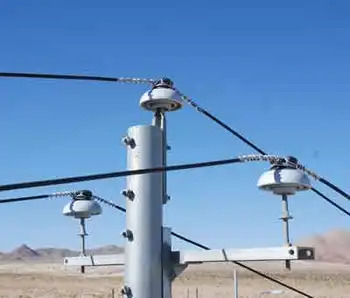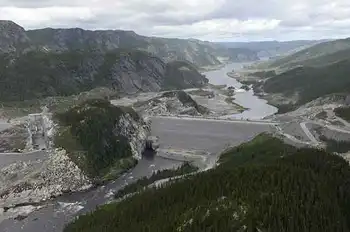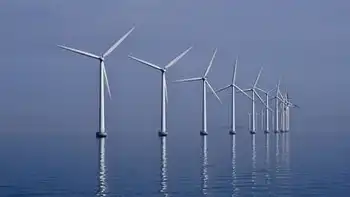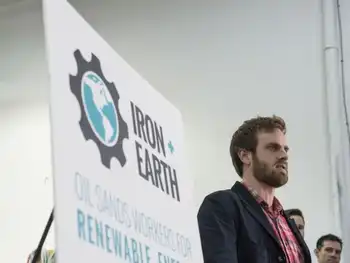Israel looking to clean technologies
Israel is driving to become a world leader in alternative energy, with the government throwing its support behind cutting-edge technologies. The number of private entrepreneurs entering the so-called "clean-tech" sector has swelled dramatically.
Already, a number of firms are moving to roll out new ideas. Perhaps the country's best known clean-tech company — Project Better Place — aims next year to activate a network of charging stations for electric cars across Israel, which would be one of the most extensive such grids in the world.
Others are still in early stages. On a 10-meter yard stretch of a north Israeli highway, the firm Innowattech tested out its system of tile-like generators, which are installed under roads and convert the weight and motion of passing vehicles into electricity. It is now looking to expand, claiming that a kilometer-long 0.6-mile lane of its generators could power more than 200 households.
Alex Klein, an analyst at Emerging Energy Research, a Cambridge, Mass., research firm, said Israel — a country of fewer than 8 million people — has in a way benefited from its small size, forcing it to develop products for export.
"Given that it has a small market locally, its role will continue to be innovating new next-generation technology. Pound for pound it is a pretty key incubator of technologies," he said.
Israel already has a formidable track record. Bolstered in large part by veterans of shadowy high-tech military units, the country helped develop such innovations as instant messaging, Internet telephony and wireless computer chips.
The government is now pushing for that entrepreneurial drive to be directed into environmentally clean technologies, not only as an economic opportunity but as a necessity for an arid, resource-poor nation. Israel, which now depends almost entirely for its energy on imported coal and natural gas, has set a goal to have 10 percent of its electricity generated by alternative means by 2020.
In November, the government approved a plan to spend $600 million over the next decade to reach that goal, with much of the money poured into encouraging green construction and development of new technologies.
Prime Minister Benjamin Netanyahu presented the plan as a security necessity.
"I view this as a national goal of the highest importance because the addiction to oil has led to the Western world being dependent on the oil-producing countries and harms the standing and security of the state of Israel," he said.
Israel's green innovation dates back decades.
The country is the birthplace of drip irrigation, a technology that promotes agriculture in arid areas. Israel recycles about three quarters of its waste water for agriculture, and for decades the roofs of its homes have been fitted with solar panels that provide hot water.
Eugene Kandel, a U.S.-educated economist who spearheads the government's efforts, said the clean-tech drive has the same motivation as the earlier breakthroughs.
"In both cases it's a matter of necessity being the mother of inventions," said Kandel, who heads Israel's National Economic Council.
In real terms, the country still lags far behind clean-tech giants such as Japan, Germany and the United States. According to an analysis of the European Union's World Patent Statistical Database issued last month, Israel wasn't even among the top 10 countries patenting environmental inventions between 2000 and 2005.
But that may change as Israel's clean-tech sector revs up. In the third quarter of this year, investments in the sector totalled $120 million, half of all private-equity investment in Israel.
In 2006, there were about 120 clean-tech companies in Israel, and 120 more have been established each year since, said Glen Schwaber, a partner at Israel Cleantech Ventures, the country's first and largest venture capital firm to focus exclusively on alternative energy.
"Per capita, we are head and shoulders above everyone else," he said.
Eight Israeli companies have been named in each of the past two years to the Global Cleantech 100 — a respected industry barometer of the top 100 companies worldwide. Only the United States and Great Britain had more companies named.
When General Electric Corp. handed out $100,000 grants in July as part of its international challenge to companies to build the next-generation power grid, two of the five winners were Israeli companies.
Israel is starting to increase its solar energy sector. Just recently, it dedicated its largest on-grid solar project — an $8.5 million collection of 40 solar panel systems that will supply 2 megawatts, enough to power about 500 homes, said Isaac Isman, vice president of business development at IC Green Projects.
This month, the government plans to issue bids for 10 more solar projects in the Negev Desert, with a total capacity of 60 megawatts.
Israeli company BrightSource Energy has taken its expertise overseas, developing the Ivanpah Solar Electric Generating System in California's Mojave Desert, expected to be the largest solar thermal project in the world.
Another Israeli-based operation, Siemens AG's Solel Solar Systems, is helping build the Mojave Solar Park, a 6,000-acre power-producing complex expected to go online next year.
Israeli firm CellEra has joined the international race to develop viable fuel cells, a technology that so far has been too expensive for commercial use. It has built what it says is a working prototype of a hydrogen fuel cell that operates without using platinum, greatly reducing the cost. It is now aiming to develop a market-ready version.
Israeli-American businessman Shai Agassi, of Project Better Place, said Israel's small size and dense population, along with government help, made the country attractive for his firm's network for encouraging electric cars.
He predicts that about half the cars in Israel will be electric by 2015.
At a recent business conference in Israel, some 1,000 companies from around the world came to study Better Place's progress, he said.
"When China comes to Israel to learn about electric cars, then something amazing is happening in Israel," he said.
Related News

Closure of 3 Southern California power plants likely to be postponed
SACRAMENTO - Temperatures in many California cities are cooling down this week, but a debate is simmering on how to generate enough electricity to power the state through extreme weather events while transitioning away from a reliance on fossil fuels.
The California Energy Commission voted Wednesday to extend the life of three gas power plants along the state’s southern coast through 2026, postponing a shutoff deadline previously set for the end of this year. The vote would keep the decades-old facilities _ Ormond Beach Generating Station, AES Alamitos and AES Huntington Beach — open so they can run during emergencies.
The state…





